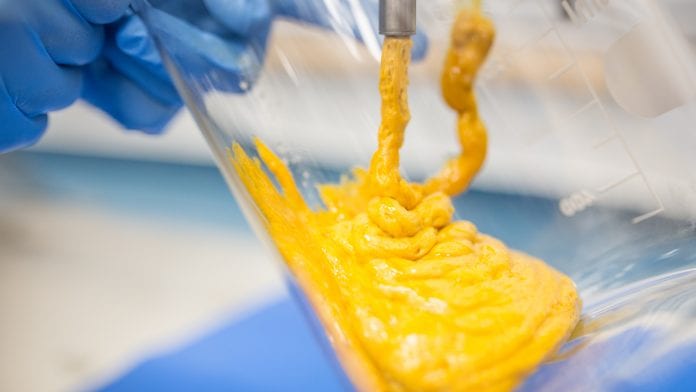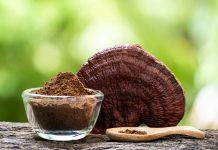
Premium cannabis-infused products built on cutting edge extraction, purification and emulsion technologies will win against generic, undifferentiated products.
Europe has seen significant investment and advancement in the manufacturing and retailing of hemp-based cannabidiol (CBD) products. However, this market is still emerging, and significant opportunities still lie ahead. The Valens Company believes the future of the cannabis industry is in value-added extracts and cannabis-infused consumer packaged goods produced using advanced extraction and formulation techniques1 – yet most countries in the EU still lag behind North America in this regard.
Manufacturers that ensure superior product quality, safety and efficacy will be rewarded. A recent study by New Frontier Data revealed that one of the top factors influencing the purchase of CBD-infused products are lab test results (77% of consumers) which verify the safety and purity of the product. For tetrahydrocannabinol (THC)-infused products, product quality is the top factor influencing purchase (according to 90% of consumers).2
The ability to create premium products that deliver the benefits consumers seek is critical to building a successful business and brand. Companies that hope to create market leading cannabis-infused beverages, food products and topicals will benefit greatly by partnering with manufacturers that leverage proven extraction, purification, and formulation technologies enabling the development of products that outperform the competition.
Cannabis extracts have a plethora of beneficial therapeutic properties, but advanced processing techniques are required to reap the full potential cannabis plants have to offer. Similarly, for consumers of cannabis-infused products to experience the full potential of cannabinoids, advanced formulation techniques must be used. The low water solubility of cannabinoids results in slow absorption and poor bioavailability. Due to this fact, a common issue many consumers encounter when consuming cannabis-infused edibles is the slow onset time and lengthy duration of effects, especially with regard to THC. The solution to this problem is the utilisation of emulsification technologies, such as SōRSE by Valens, that make cannabinoids highly soluble in water. The emulsified cannabinoids from such a system are more readily absorbed, resulting in faster onset times and a shorter duration of effects that allow for a more predictable, consistent, and overall satisfying experience.
The five key types of cannabis extraction
The Valens Company is one of the few companies in the world that can facilitate the utilisation of five extraction techniques using customised and proprietary methods and technology, with further research and development always ongoing. This flexibility and technical expertise allow The Valens Company to produce almost any cannabis product imaginable, which means its clients can make their vision of a unique and differentiated cannabis-infused product a reality.
The Valens Company takes a customised approach to each client, leading them through the process of product development to maximise the quality and efficacy of their desired products based on their unique needs.
Supercritical and subcritical CO2 extraction
In this method, supercritical CO2 enters into the trichomes, dissolves the cannabinoids and terpenes, and then moves them out into the solution. This liquid, now containing the desired extracts and CO2, is then moved into a cyclone separator.
Within the cyclone, pressure and temperature drop to facilitate the movement of CO2 back to a gaseous state. The released gas is then moved into a second separator, where gravity ensures that it is free of residue as it moves toward the condenser. Here, the gas shifts back into its liquid phase for storage in the accumulator, creating an innovative closed-loop system.
The crude extract is gravity fed through the system, ready to be poured out for collection. The result is a rich, concentrated resin, without any residual solvent, with the waxes and chlorophyll still present. As most CO2 extraction purposes require a refined oil, winterisation usually follows to remove these compounds.
Subcritical CO2 extraction still uses CO2 under high pressure but lowers the temperature to a subcritical state. At this point the solvent still has some fluid properties, but is not as efficient at extraction. This process is often used to prevent the loss of volatile compounds, with the cost of increased time and reduced yield. This is a worthwhile tradeoff when results must closely resemble the starting plant material, offering authentic fragrance and flavour for a full spectrum product.
Consider supercritical CO2 when producing oil (used for capsules and vape pens); full and broad spectrum resins; concentrates; and distillates. Consider subcritical CO2 when producing full flavour oil (this is best for vape pens) and extracting terpenes.
Ethanol extraction
Ethanol is cost efficient, scalable, and can dissolve all of the compounds in cannabis, including cannabinoids, terpenes, waxes, lipids, and chlorophyll. In ethanol extraction, cannabinoids and terpenes are pulled directly from the biomass, essentially removing the desired compounds all at once. This provides a winterised oil without the crude step that most other solvents require. Ethanol extraction is well known for producing full spectrum extracts that closely resemble the starting plant matter in composition.
Consider ethanol when producing: oil (used for capsules); tinctures; topicals; cannabinoids; and distillates.
Hydrocarbon extraction
Hydrocarbon extraction, with butane as the most common hydrocarbon solvent used, is effective at selectively extracting desired compounds. Unlike ethanol with its hydroxyl group that can dissolve waxes and chlorophyll, butane is only made up of a hydrocarbon chain. This means that it will dissolve only cannabinoids and terpenes, leaving the rest behind.
The extraction process using hydrocarbon solvents usually involves washing the plant material with cold butane. This slowly dissolves the Cannabinoids and terpenes, leaving behind the rest of the unwanted compounds. Hydrocarbon extraction can produce a variety of end products with minimal post-processing required.
As high heat is not needed for this extraction, hydrocarbon extraction results in a terpene-rich end product, closely resembling the starting plant material (but without the green pigment). This is also the best extraction method for preserving cannabinoid acids, such as THCA, which is required for making shatter.
Consider hydrocarbon extraction when producing oil (used for vape pens); concentrates; shatter; wax; and butane hash oil (BHO).
Solventless extraction
Solventless extraction stems from more traditional methods of mechanical separation with ice water to remove the wanted compounds, and the use of immense pressure and heat to bind the extracted trichomes. This method can be labour intensive and time consuming, but is one of the best methods for achieving the profile of the flower in the extract itself.
Consider solventless extraction when producing traditional hash; bubble hash; rosin; and solventless dab derivatives.
Terpene extraction
Terpene extraction can be done using subcritical CO2 and often precedes other methods of extraction. Separating the terpenes first allows extractors to process the remaining material with higher temperatures, which would otherwise damage the terpenes.
The most common method for terpene extraction is fractional or short-path distillation, which uses the unique boiling points of terpenes and cannabinoids for separation and collection, often in a stepwise manner. The terpene or cannabinoid with the lowest boiling point is the first to evaporate, allowing it to be condensed and collected. Then, the temperature is raised, and the next lowest boiling point compound is collected in the same way. This process is repeated until all components have been separated.
Consider terpene extraction when producing terpenes; cannabinoid distillate with up to 99% purity; and recombination oils (combinations of specific cannabinoids and terpenes of distinct concentrations).
Extraction
The cannabis extraction process requires a deep understanding of the plant, along with the scientific expertise necessary to decipher its complex chemical makeup and produce the full range of cannabis products. The Valens Company appreciates the intricate complexity of cannabis extraction and employs numerous research and development scientists with expertise in fluid dynamics and physical, organic and analytical chemistry, as well as experienced extraction technicians with high levels of mechanical aptitude to operate and maintain the complex equipment required to undertake extraction.
Further, extractors must know the type of extract they desire so they can choose the optimal technique. A wide variety of options exist (for example, carbon dioxide, alcohol or hydrocarbons as extraction solvents); and while there is some overlap, different methods produce extracts with unique chemical compositions and consistencies. The Valens Company employs CO2, ethanol and hydrocarbon extraction techniques which, collectively, can produce nearly any type of extract.
Collecting and purifying cannabinoids
People are most familiar with THC and CBD; yet these are only two of more than 100 cannabinoids that scientists have identified to date.3 The Valens Company believes that the key to producing high quality extracts is in the development and optimisation of extraction and processing methods that target desired compounds (like cannabinoids, terpenes and flavonoids) and leave behind unwanted components (like chlorophylls, lipids and sugars). The chemical composition of cannabis (often referred to as the ‘chemotype’)4 typically has a large degree of batch to batch variation, as is the case with most natural products. However, The Valens Company has found that optimised extraction methods can decrease the magnitude of this variation, which ensures consistent cannabinoid concentrations. Extract consistency allows for cannabis-infused products to be standardised and precisely formulated to deliver reliable and predictable experiences.
Additional post-extraction processing may also be required to obtain the desired extract composition. For example, winterisation can be used to separate contaminating lipids from the crude extract: in this process the extract is dissolved in an alcohol solvent and exposed to sub-zero temperatures to solidify residual lipids, which can then be removed using a variety of filtration techniques. The resulting ‘dewaxed’ extract-alcohol solution can be heated to evaporate the alcohol and leave behind a winterised resin’ with a higher cannabinoid purity (70-80%) than the crude extract (50-60%). Fractional distillation techniques can be used to produce cannabinoids with a purity of 85-95%, and some cannabinoids, such as CBD, can be turned into solid crystalline isolates with purities above 98% by utilising a variety of crystallisation and chromatographic techniques.
The Valens Company has the ability to produce extracts with varying degrees of purity. This enables manufacturers to use the most appropriate extract for a specific application: distillates and isolates have much less of a sensory impact (smell and taste) on cannabis-infused products compared to less pure crude and winterised resins, and so are best suited for products that require a satisfying taste, such as edibles and beverages. However, distillates and isolates require additional labour and cost to produce, and so crude and winterised resins can be the grade of choice to maximise throughput and margin when sensory impact is not as important, such as with topicals and capsules. However, highly purified cannabinoids lack the biochemical complexity of less pure and more natural extracts, and this can have a negative impact on the experience and therapeutic effect.
Targeting terpenes
Cannabis also contains over 140 different terpenes and terpenoids, are aromatic compounds that provide distinctive fragrances and flavours. Studies have shown5 that terpenes also have the ability to modulate the effects of cannabinoids by interacting with the same receptors in the human body. For example β-caryophyllene, a terpene commonly found in black pepper as well as in cannabis, has been shown to interact with the CB2 brain receptor to which cannabinoids also bind to cause physiological effects.
Extraction of the native terpene profile of the cannabis plant can be difficult, as terpenes are volatile and sensitive to degradation. The Valens Company has developed methods to extract a pure terpene fraction that reflects the profile of the extracted cannabis strain, using its proprietary terpene extraction process to isolate strain-specific terpene profiles: these are formulated back into cannabinoid extracts to make unique products with distinct sensory and physiological characteristics.
Activating the compounds
Cannabis plants do not actually produce THC and CBD, but rather, the plant’s biosynthetic enzymes produce their acidic precursors THCA and CBDA, which have an extremely low potency compared to their neutral counterparts – although acidic cannabinoids like THCA may offer some of the benefits of neutral cannabinoids like THC, without the intoxicating effects. Conversion to THC and CBD is naturally slow, but can be accelerated using elevated temperatures, such as when the cannabis flower is smoked or vaporised. In developing cannabis-infused products that will not be heated before consumption, such as beverages, edibles and topicals, a decarboxylation step must be incorporated either before or after extraction in order to ‘activate’ the cannabinoids. The Valens Company utilises proprietary extraction and purification methods to target both acidic and neutral cannabinoids. This provides an inventory of active ingredients that can be formulated to produce a wide array of customised cannabis-infused products with a spectrum of therapeutic and recreational effects.
Care must be taken throughout the manufacturing process of cannabis-infused products to carefully control temperatures and prevent degradation of bioactive components. Heat can accelerate the oxidation of cannabinoids and degrade and evaporate terpenes, resulting in lower quality and less consistent products with decreased therapeutic efficacy. The Valens Company utilises a robust optimisation programme to ensure the consistent, efficient, cost effective manufacture of products delivering the desired effects.
When extraction is treated as both an art and a science, producers can precisely control the consistency and complex chemical composition of the extract and make it reflective of their chosen cannabis strains. Cannabinoids and terpenes interact with many receptors in the human endocannabinoid system.6 With the variety of cannabinoids and terpenes and the number of receptors they interact with in the endocannabinoid system, a plethora of unique effects are possible. The combination of bioactive molecules in the cannabis plant is greater than the effect of the single molecules, resulting in a unique synergy7 often described as the ‘entourage effect’.
Meticulously tested
There is currently a lack of standardisation in cannabis testing methods, which risks allowing potentially contaminated or improperly processed products into the market. Every batch of extract and cannabis-infused product processed by The Valens Company is tested for purity and safety.
As the first ISO 17025 accredited laboratory for third party cannabis testing in Canada, The Valens Company is working to elevate cannabis testing by establishing a trusted global standard. The Valens Company is in the process attaining Good Manufacturing Practice (EU GMP) certification from the European Medicines Agency; and has been named a ‘Centre of Excellence in plant-based science’ by ThermoFisher Scientific.
Emulsion
Maximising the benefits of leading edge extraction to produce top shelf cannabis-infused products requires advanced formulation techniques. The unique, industry-leading combination of The Valens Company and proprietary SōRSE by Valens emulsion technology delivers water-soluble cannabinoids with consistent, accurate dosing to the last drop. It will also enable your cannabis-infused products to maintain their potency and flavour profile – even when heated, chilled or frozen.
Safe, stable and scalable, SōRSE by Valens is a water-soluble cannabinoid emulsion technology that encapsulates the oil phase (where cannabinoids are present), transforming the entire solution into a water-compatible ingredient. It’s available in liquid, powder, and agglomerated powder formats, and ideal for infusing beverages, food items, topicals, and nutraceuticals. The benefits are immediate and make a tangible difference to the consumer experience.
Enhanced bioavailability
Bioavailability is a metric that indicates how much of an active ingredient is absorbed into the bloodstream and can therefore have a physiological effect. Typical oil-based cannabinoid formulations have low bioavailability, meaning a high proportion of cannabinoids that are ingested are not absorbed. In contrast, the SōRSE by Valens cannabinoid emulsion makes cannabinoids soluble in water and greatly enhances the absorption into the intestinal tract, increasing their bioavailability. This means consumers will experience a stronger effect with lower doses, as well as a significant reduction in offset time.
Superior cannabis-infused product experience
The Valens Company extracts and SōRSE by Valens emulsion technology deliver visible improvements in consistency and stability. Depending on product formulation, it is possible to obtain more than one year shelf stability with no evidence of separation. Consumers demand products that look superior on the shelf, have an optimised flavour profile, deliver consistency from one experience, and feel better once consumed. When a product genuinely and reliably delivers on what it promises, consumers are more likely to buy it again and to recommend the product to a friend.
Opportunity awaits: infused beverages
The global market for cannabis-based drinks is expected to be worth €1.28bn billion by 2024.8
Leveraging The Valens Company’s premium active resins and SōRSE by Valens emulsion, European companies have the opportunity to create an exciting new beverage product category that rivals soft drinks and water.
References
1 Source: Cowen Equity Research Report (US MarketShare); Valens forward-looking prediction
2 2020 New Frontier Data white paper: Cannabis-infused products: US consumer experience and demand
3 Sources: www.ncbi.nlm.nih.gov/pmc/articles/PMC3570572; www.ncbi.nlm.nih.gov/pmc/articles/PMC3736954
4 Source: https://pubmed.ncbi.nlm.nih.gov/3628560
5 Sources: www.ncbi.nlm.nih.gov/pmc/articles/PMC3165946; www.ncbi.nlm.nih.gov/pmc/articles/PMC3165946; www.frontiersin.org/articles/10.3389/fphar.2018.01259/full
6 Sources: https://pubmed.ncbi.nlm.nih.gov/19630737; https://journals.physiology.org/doi/full/10.1152/physrev.00002.2016
7 Source: www.ncbi.nlm.nih.gov/pmc/articles/PMC3165946
8 Source: Prohibition Partners
Jeffrey Fallows
President
The Valens Company
+1 778 755 0052
jeff@thevalenscompany.com
Tweet @TheValensCo
https://thevalenscompany.com
This article is for issue 3 of Medical Cannabis Network. Click here to get your free subscription today.







